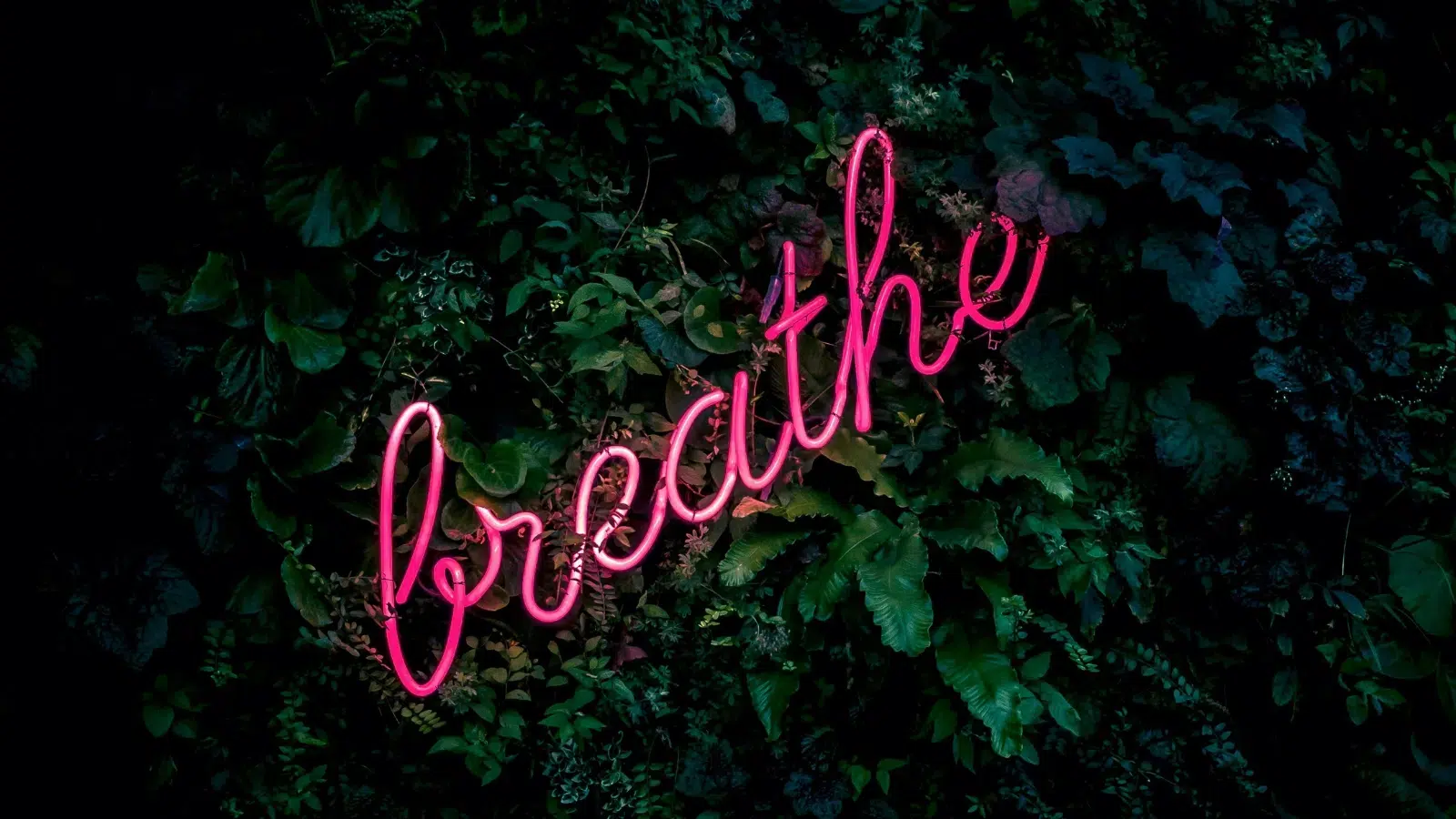In August 2012, I met Rick Doblin, founder of the Multidisciplinary Association of Psychedelic Studies (MAPS), at his home near Boston to interview him for my research on the role of set and setting in the psychedelic debate of the 1960s. We set out on a long walk in the park, and Doblin explained to me the current state of psychedelic research.
Recently, I met Doblin at the Psychedemia conference which took place at the University of Pennsylvania in September, 2012, and had the chance to discuss the topic with him again. This interview is based on both of those conversations.
“You know, it was actually the Holocaust that was my main motivation for doing what I do,” Doblin told me late one night as we sat together after a long day of lectures at Psychedemia.
“The Holocaust brought you to psychedelic research? How?”
“It was my recognition that this catastrophic abuse of power and violence was made possible by ignorance, fear, scapegoating, and people projecting their shadow onto others. Psychedelic psychotherapy, and the mystical sense of unity that psychedelics can generate can, be an antidote to all of those things.”
Having a strong metaphysical foundation for your work is probably necessary when that work entails challenging the current status of the law, government agencies, and well entrenched fears. However, things are not always so serious with Doblin. Sporting a perpetually cheerful smile, and always enthusiastic about discussing the burning issues of psychedelic research, Doblin who earned his PhD in public policy from the Kennedy School of Government at Harvard University is the perfect poster child for psychedelic research.
He has played a central role in advancing the cause of psychedelic research since 1986, when he founded MAPS, an organization which today is the central connecting and facilitating platform for psychedelic research around the world. Over the past decade, MAPS has been leading the research on MDMA, treating Post-Traumatic Stress Disorder (PTSD) in war veterans. It has also sponsored research on the use of LSD and MDMA for treating terminal patients with end-of-life anxiety, and the use of ibogaine and ayahuasca for the treatment of opiate addictions.
“Psychedelic researchers are focusing on two main fields, toward making psychedelics available through prescription” says Doblin. “Heffter Research Institute is leading the effort on psilocybin, focusing its research on the use of psilocybin for end-of-life anxiety, while at MAPS we focus on the use of MDMA for the treatment of PTSD”.
More Than a Life’s Work
“Seven to ten years” is what Doblin says it will take until MDMA is approved by the FDA as a treatment for PTSD, if all goes well. After it is approved, doctors will also be able to prescribe it off-label for other conditions, which could lead to its recognition as an effective treatment for other psychological afflictions.
Seven years might sound like a long time, but the fact that Doblin is even in a position to speculate speaks volumes about the progress psychedelic research has made since he founded MAPS in 1986, just one year after MDMA was made a schedule I drug. Doblin’s role in bringing psychedelic research back into the lab might be contrasted with that of the 1960s “Dr. LSD,” Timothy Leary, who was responsible, in the eyes of some, for the psychedelics ban in the first place.
Doblin has dedicated two impressive academic papers to examining Leary’s work and has uncovered some thought-provoking flaws in that early research. It seems he has dedicated his life to fixing the damage done to psychedelic research in the 1960s. While Leary’s work was sometimes criticized by opponents for lacking a rigorous methodology, exaggerating benefits, and underestimating the safety risks, Doblin has put the emphasis on a cautious, careful, and rigorous approach. Most importantly, Doblin seeks to bring change from within the establishment, rather than rejecting or antagonizing it.
“Today, we are more aware that there are complex issues that have to be looked at,” he says. “This has to be done more cautiously, because we’re speaking to a freaked-out culture that had a bad trip with psychedelics. We’re trying to talk them through it, and work through these things. There is a growing sense of opportunity for psychedelic research. It’s still fragile, but it’s not that fragile. It’s international, and it has to be done in a really transparent, open way. People are fascinated by this stuff and they should be. It’s all about love, connection, feelings, and spirituality.”
Our discussion continued.
Ido: You’ve been involved in psychedelic research for three decades, starting when there was a strict moratorium, and eventually arranging FDA approved Phase 2 trials. You are now working to start Phase 3 trials, which will take even more time, money, and tackling of bureaucracy. It’s a long and complicated process. Do you see it as your life’s work?
Doblin: It’s more than a life’s work. Ten years ago, I was worried that my interest in psychedelics would be perceived by young people as this idealistic, naïve idea of the hippies that had been discredited by the conservative drift and the failure of the sixties. I worried that if it didn’t all get done by my generation, it might never get done, because other generations might not value it, and that we were isolated, self-deluded hippies. What I’ve found is that there are more than enough people in the younger generations who are interested in psychedelics. Most of my staff is in their 20s, and they are really connected to the spirit of what we’re trying to do. I feel I can try to optimize the timing of initiatives, in terms of when we get our data out, when we have the latest media announcements, and so on.
Ido: A lot of people in the psychedelic community have criticized the use of a medical model in the past. It is often noted that most people don’t want to spend a psychedelic experience together with doctors in a medical setting, and that the medical model doesn’t address the full potential of psychedelics. What do you say to that as somebody who stands at the forefront of medical psychedelic research?
Doblin: That it is totally right. We don’t want a medical priesthood or a religious priesthood, because there are different kinds of benefits. There are physical benefits, marital counseling benefits, spirituality benefits, creativity benefits, and recreational, celebratory benefits. My background is psychology, governance, and public policy. I am trying to pick a strategy that will lead to the widespread availability of the legal use of psychedelics. I think it will come through psychedelic prescription medication. In a way, we already have legal medical use with ketamine, which is a prescription medicine for anesthesiologists, and can be prescribed off-label. The idea of using psychedelics as a medicine is likely to be most in line with what has already happened in the mainstream.The spiritual use of psychedelics is currently limited to small religious groups, but it plays an important role in changing cultural attitudes, especially the use of ayahuasca. But expanding to personal freedom, beyond religious groups, to the use of psychedelics for individual spirituality, creativity and personal growth, is too close to wholesale legalization to lead the way.
A Psychedelic Renaissance
For an outside observer, the return of psychedelic studies would probably have seemed highly improbable 25 years ago. Psychedelic studies were put on a moratorium at the end of the 1960s, and seemed to be a thing of the past that would never be allowed to happen again. However, since 1990, the volume of academic research papers on psychedelics has been rising steadily. In the past decade, this growing flow has turned into an impressive corpus of studies about psychedelics coming from labs, as well as from an increasingly wide variety of academic disciplines, and giving rise to talk of a psychedelic renaissance.
“FDA is willing to do science over politics. That’s the key thing,” says Doblin. “They’re willing to have a rational scientific debate.”
Ido: What caused this change of attitude?
Dobin: The change at the FDA was not due to the debate over psychedelics. It happened as the result of the pharmaceutical industry and Congress influencing the FDA to speed up the drug development review process. In 1989, this led to the creation of the Pilot Drug Evaluation Staff, a new group at FDA with the responsibility of reviewing research with psychedelics and marijuana, along with medications for pain, headaches, and other indications. They wanted to show that they had processes that would expedite drug development. They wanted psychedelic and medical marijuana research to proceed so they could demonstrate these new processes. In 1992, the FDA advisory committee recommended that human studies be resumed and regulated by the FDA the way they regulate any major pharmaceutical company. The FDA got NIDA, the DEA, and the drug czar to agree to that by making it seem as if those little non-profit psychedelic people would never get past the FDA drug development system. According to the pharmaceutical industry, it costs more than a billion dollars to get a drug out into the market. However, it won’t actually cost MAPS a billion dollars – more like $15-$20 million.
Ido: Why? Where was the flaw in their line of argument?
Doblin: These numbers come from the Tufts Center for the Study of Drug Development. The different pharmaceutical companies send financial information about their research efforts to this central place under conditions of confidentiality.
Pharmaceutical companies are for-profit entities. There is a concept called opportunity cost, which is the measure an activity’s cost in terms of the the next best alternative. Theoretically, they could be using the money they invest in research for no return to invest in the stock market or in bonds. Even in this investment climate, they were calculating that they could be earning 12% a year on what they’re spending for research. When you take into account compounding interest, and that these research processes sometimes take 15-20 years, half of that billion dollars is this opportunity cost. We don’t have that because, as a non-profit, we don’t consider money spent on research as a lost investment opportunity.
The other factor is that these companies have only had a few successes. In fact, they have a lot of failures. The cost of all of their research effort is amortized over these few successes. If they spent half a billion dollars but only got 2 success, then each one cost 250 million. We know psychedelics work, we just have to prove it. We don’t need to study thousands of different new molecules to come up with a drug that works.
They come up with something that’s patentable so that they can control it, and they have to spend a lot of money proving safety. We have the advantage of MDMA being ecstasy, and governments all over the world have already spent over $300 million dollars on trying to show why it’s bad. Millions of people have taken it, so we know all the side effects. The FDA knows more about MDMA than any other drug they have ever approved. This is also true about LSD, psilocybin, the other classic psychedelics, and marijuana.
When you subtract all these costs to pharmaceutical companies that we don’t have to spend, you start trying to calculate what it will cost to conduct the research needed to prove safety and efficacy in your specific patient population. One factor of cost is that the larger the treatment effect and the less variability in the results, the less subjects you’ll need. My guss is it will cost about $15 million dollars. The costs are reasonable, particularly since the research expenditures are spent over 8 years or so. Funds don’t have to be raised all at once.
Ido: Where do you get your funding from?
Doblin: Donations from individuals and family foundations have been the only source. There have been no government grants yet since the government is still in middle of supporting the war on drugs. There are also no pharmaceutical grants since psychedelics are off-patent, can’t be monopolized, and compete with other psychiatric medications that people take daily. But overall, controversy has lessened, and the need for new treatments for PTSD, end-of-life anxiety, and addiction has increased. Baby boomers are a large source of support. Some of them are returning to psychedelics again after years of absence while they focused on careers and family. Time is on our side. There is a group of boomers who have been financially successful that are now rediscovering spirituality as they get older. These people are helping financially, and also culturally. These are people with good reputation that you’d be surprised had good experiences with psychedelics.
I think our chances for private funding are quite reasonable. While the next level is more expensive each time we get more data, more people are willing to get involved. I have been talking with a foundation in England that is considering whether it is a reputational risk or a reputational opportunity for them to support MDMA/PTSD research. Unfortunately, they see it as a reputational risk. This foundation is the largest in England. It has $20 billion dollars in assets and gives away about a billion dollars per year. They are still not ready to get involved, so we have to keep trying with them for another couple of years. We have to get to the end of Phase 2, which will cost about $3 million, and then have Phase 3, which will be about $10-15 million.
Ido: When process is completed, what kind of model do you see for psychedelic therapy in the future?
Doblin: The treatment form depends on the condition you’re treating. In general, it will be non-directive, client-focused, following the emotional threads brought up by patients. There will be positive, corrective experiences, as well as working through trauma, particularly end-of-life therapy, and PTSD. Outside of treating diagnosed psychiatric indications, it can also be used for couple’s therapy, spiritual growth, and, eventually, rites of passage at all ages. It could be used to make bar mitzvahs more meaningful, to help young people decide what they want to do with their lives, and other things throughout the lifespan. When I turned fifty, I felt that I needed a big dose of LSD-assisted psychotherapy just to adjust to getting older.
Ido: Can all of this really fit that within the scope of therapy?
Doblin: No, because it goes beyond curing clinically diagnosable mental illness. These are existential issues of being alive, not pathologies. That’s one reason why we’re not looking into couples therapy. MDMA could be great for couples therapy, but that’s not a disease. To make it into a medicine for couple’s therapy, you have to make it into a medicine for a disease first. Then doctors can prescribe it off-label for couple’s therapy and other conditions. Once you get it approved for one thing, physicians have the freedom to prescribe it for other purposes. I think it’s initially going to be approved for use only in psychedelic clinics. The therapists will be regulated and the set and setting will be regulated.
Ido: So the set and setting will actually be part of the regulation process? It is actually part of what we look at when we look at the results of research, right?
Doblin: Yes. Setting is what the FDA has been regulating in our research studies. They will be talking with us about what we recommend for the setting. Initially, the setting will most likely be similar to the one in which the research was conducted. We showed that it is effective in a particular setting. We didn’t show that they took the drug at home, went to the beach, had a great time, and now their PTSD is better. It’s likely that there will be a certain kind of training that psychiatrists and therapists will have to receive. There will be rules for the setting and physical location. Such rules could include there having to be a bathroom that you can get to from your room to avoid walking through a public space, having to spend the night there, monitoring and co-therapists teams to make sure there is no abuse or unethical treatment, and safety equipment in case of emergencies.
Ido: Are there any major opponents for psychedelic research at this point? Is there anybody that is really trying to stop this thing?
Doblin: Because of supposed toxicity and memory problems, there are some academics funded by the NIDA who will say that MDMA is too dangerous to be used even once in therapy. In April, 2011, at Breaking Convention, a big psychedelic conference in England, there was a panel that was focused on MDMA research. The panel discussion featured a fellow by the name of Andy Parrot, who is the leading opponent of MDMA research in the scientific community. As you can see on the video of the debate on the MAPS website, he’s got a lonely position that’s difficult to defend scientifically. It seems he does that for the publicity and attention. There are not a lot of people left in the scientific community who say that it’s too dangerous to be used therapeutically. However, there are still a few, and Andy Parrot is one of them.
After 15 years of trying to get the military interested in MDMA/PTSD research, there was a meeting 2 years ago with senior Veteran’s Administration (VA) people and senior psychiatrists at a major research university. Unfortunately, the VA people said it was too politically complex for them to get involved at this time, but that it is important research and somebody should be doing that. Presently, we’re trying again to see if things have shifted over time.
Sometimes, the opponents are parents groups that think that the best way to protect their kids is to tell them scare stories and block research into benefits. Supposedly, there are drugs are all bad, with only risks and no benefits. This sort of dishonest drug education doesn’t really work.
The pharmaceutical companies are not opponents because they don’t see us as a threat. The DEA is not very thrilled about it, but we’ve outmaneuvered them. The military has got more power than the DEA. The veterans have more power than the DEA, and they want to see this research take place.
A Psychedelic Driver’s License
The topic of drug legalization has been a locus for hot debate in American society over the years, and one which many psychedelic research advocates seek to separate from the issue of scientific research. When asked about the relation between psychedelic research and psychedelic legalization, Doblin says that’s one of the hardest questions.
“It all comes back to the methodology,” he says. “Even from a scientific point of view, it is better for people to disclose their biases. Otherwise, you have a conflict of interest. If you think that prohibition is this vast injustice that inhibits research, then I believe it’s best to admit that. This is not the least controversial path in the short run. However, our strategy is for the long run.
Still, Doblin argues, we don’t really want all drugs to be available to everybody all the time. Same as with alcohol, regulation will be needed, but a smarter one. Doblin is a proponent of the “drug driver’s license” concept, which was also championed by Leary back in the 1960s. It follows the notion that, like guns and cars, drugs are tools which can be used or abused. In the same way that a person needs to get a license to drive a car or own a gun to insure his safety and the safety of others, that person will have to go through a certain kind of training to get a license to use a certain drug. More knowledgeable drug users, who were taught to use drugs in a safer, more intelligent way, should lead to decreased drug casualties. Also, Doblin argues, since violating the terms of a drug license would lead to its retrieval, users will have more to lose and be more careful not to abuse drugs. “It won’t make the black market disappear, but it will make it smaller, which will make it more difficult to obtain drugs illegally. It might make people think twice before they do things which will put their license at risk,” he says.
Until the psychedelic driver’s license meme becomes dominant, MAPS is doing other work to minimize drug harm. The organization has been involved with different educational activities like the “Psychedelic Crisis” video, which teaches YouTube viewers how to help a person having a bad trip. Another one of these activities has been setting up psychedelic emergency clinics in festivals. “We have been doing this psychedelic emergency service at Boom Festival and at other large festivals where people do a lot of drugs,” says Doblin. “We will have therapists and volunteers to help people who need it. The Boom festival, for example, has spent 30,000 euros to provide this psychedelic emergency service. They funded teams that were there 24 hours a day. This work envisions how things might work in a post-prohibition world, because people are going to be using these things recreationally.”
Ido: How many emergencies do you have in such a festival, and how do you handle them?
Doblin: Sometimes over a hundred. The treatment takes place in a large geodesic dome that separated into different spaces by white sheets. What we mostly says is, “you didn’t intend this to happen, but you can see this as an opportunity.” It’s more of a therapeutic approach, like short-term, acute psychotherapy. This turns into a kind of training program for therapists. We don’t have to worry about getting arrested for providing this sort of support because in Portugal, drugs are decriminalized. This allows measures that increase drug use safety to exist. At Boom, they provide thin layer chromatography drug testing. People can bring in drugs they bought and have them tested for authenticity. They tell you for free if it’s fake or if it’s pure. That brings you back to the question of legalization. Widespread use by young people in the 1960s is what panicked people, and led to the criminalization of research. Now that we got some of the research back, non-medical use is still illegal. If people get scared of the illegal use, they could shut down the research. By focusing on harm reduction, we help prevent that from happening.
Ido: That depends on the public discourse about drugs and psychedelics. Do you see a sign for change in the way these things are perceived in the general society and culture?
Doblin: The term ‘psychedelic’ is becoming rehabilitated. More and more people are hearing the word ‘psychedelic’ being said by doctors wearing suits and ties. The two hardest symbolic obstacles we had to overcome to show the arrival of the psychedelic renaissance were starting LSD research, since LSD is the symbol of the 1960s, and starting research at Harvard, which is where Leary was. Once those research goals were accomplished, people were like, “Shit! They’re doing this at Harvard!” Recently, we had an article in military.com about our initial success in our first MDMA/PTSD study. It was republished in the Navy Seals website, and reported by the Partnership for a Drug Free America, without saying that this was a terrible thing. That tells you something. Our work with war veterans has really moved us forward. When you look at the big picture of psychedelics and psychedelic research today, I think things are going pretty well.
For more on this subject, check out the new Reality Sandwich Single e-book by David Jay Brown, Psychedelic Drug Research: A Comprehensive Review. You can read an excerpt here.
Image by afgooey74, courtesy of Creative Commons licensing.









